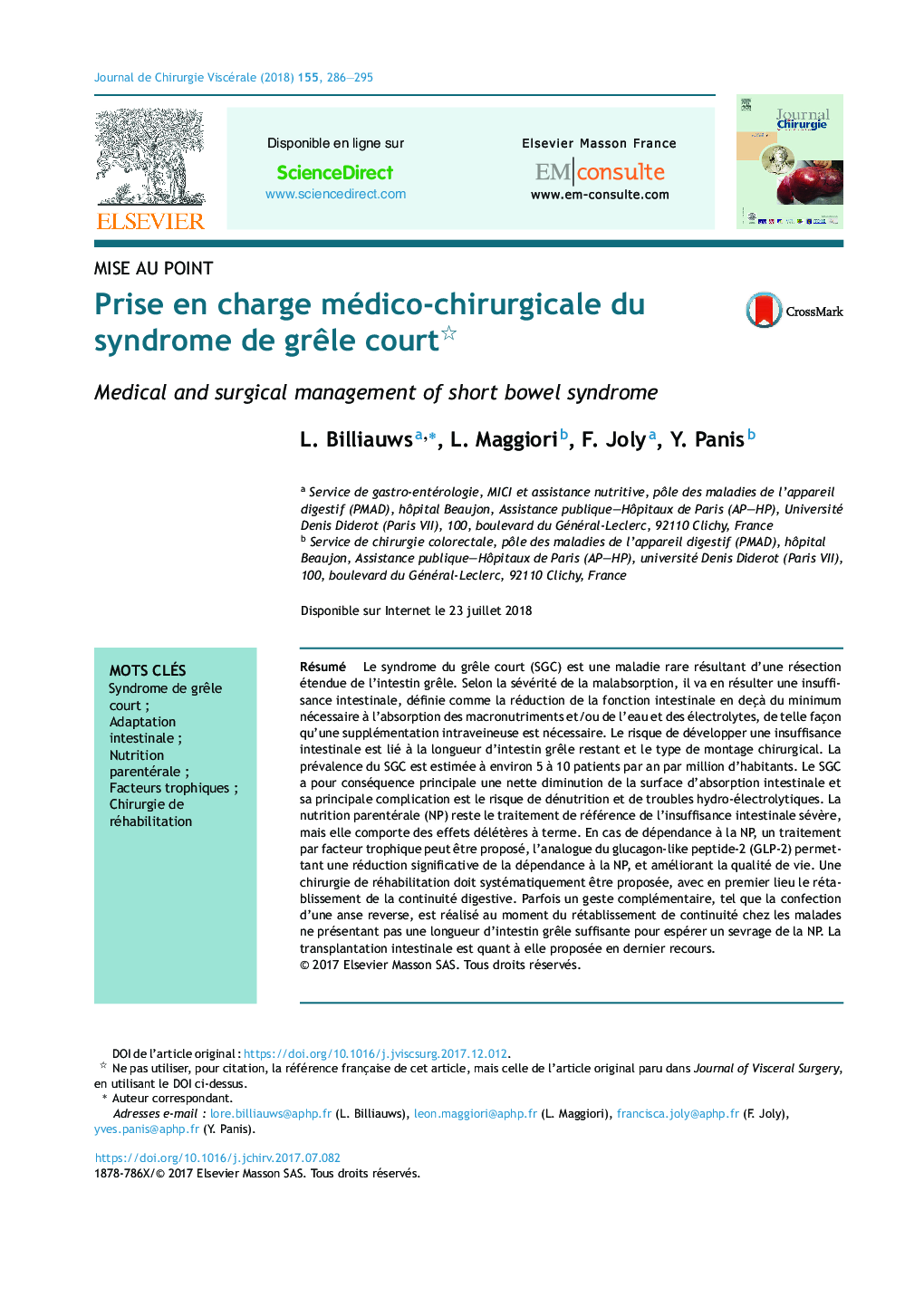| Article ID | Journal | Published Year | Pages | File Type |
|---|---|---|---|---|
| 8957726 | Journal de Chirurgie Viscérale | 2018 | 10 Pages |
Abstract
Short bowel syndrome (SBS) is a rare disease, resulting from extensive resection of the small intestine. Depending on the severity of malabsorption, it will lead to intestinal failure, defined as the reduction of gut function below the minimum necessary for the absorption of macronutrients and/or water and electrolytes, resulting in a situation where intravenous supplementation is required. The risk of developing intestinal failure is related to the remaining length of small intestine and the anatomy of the remnant bowel. SBS incidence has been estimated to range from 5Â to 10Â patients per year per million population. The main consequence of SBS is a marked reduction of intestinal absorption surface and its main complication is undernutrition and hydro-electrolytic abnormalities. Parenteral nutrition (PN), the major treatment of intestinal failure, has long-term complications. In case of PN dependency, treatment with trophic factors can be proposed. Glucagon-like peptide-2 (GLP-2) analogs allow significant reduction of PN dependency and improve quality of life. Rehabilitative surgery should always be proposed, with the primary goal of restoring digestive continuity. Sometimes, an additional surgical procedure, such as an anti-peristaltic reversal of a small bowel segment, is performed when restoring digestive continuity in patients with insufficient length of remnant small intestine to enhance the possibility of PN withdrawal. Intestinal transplantation is proposed as a last resort.
Keywords
Related Topics
Health Sciences
Medicine and Dentistry
Gastroenterology
Authors
L. Billiauws, L. Maggiori, F. Joly, Y. Panis,
